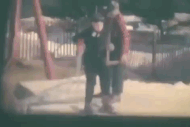Yeah, like when the banks call in the loan...and he can't sell it for even close to what he paid.whiteout wrote:that does not compute. if Harry's ability to cover debt service is compromised, then he'll have issues. but home values enter the equation only upon disposition or financing.KingsFourMan wrote:yeti wrote:The APR and interest only crowd have something to worry about, along with those that are flipping properties... but in general Harr(y/iet) Homeowner with a fixed rate is and will be fine.
Harry/iet won't be fine if his/her fixed rate mortgage plus his home equity loan (which is usually adjustable rate) is more than his house(s) is/are worth.
also, 1/3 of all mortgages today are adjustable rate, that's a lot of housholds.
Real Estate Bubble
Moderators: SkiDork, spanky, Bubba
- Stormchaser
- Level 10K poster
- Posts: 13763
- Joined: Nov 4th, '04, 22:32
- Location: Hot tub




Speaking just for Killington...
In the last real estate crater, condos took a much bigger hit than single family homes. The older condos and condos that had issues like steep condo fees (Mtn Green) or legal problems (The Woods) had units selling at bank auction for 50 cents on the dollar. You could buy a 1 bedroom at Mtn Green for $10K. You could buy a villager unit at The Woods for about $90K. The better quality condo stock took maybe a 25% hit. Newer single family homes didn't drop much but the old 60's and 70's housing stock with the shag carpets and avacato or harvest gold appliances dropped significantly. I guess that the moral of the story is that in a down market, the prices for the lower quality stuff go back to where they belong.
This time, I think the disaster property is going to be the quartershare units at the Grand Summit. As the place gets older, there are going to be wopper assessments to rehab units and fix structural problems of the building. There's no guessing what will happen to the high end since Killington didn't have any high end properties 15 years ago. If Killington and their *cough* partner *cough* start building a base village with lots of condos, that could really change the market and cause a steep decline in prices for off-mountain condos. When there's tons of ski-in/ski-out rental stock, it will be tough to rent something that requires taking a shuttle.
Around me, real estate is tied somewhat to the 4,000 jobs that are likely to vanish when they close the Portsmouth Naval Shipyard. The fringe areas in the surrounding towns will tank horribly. The better spots probably won't drop all that much.
In the last real estate crater, condos took a much bigger hit than single family homes. The older condos and condos that had issues like steep condo fees (Mtn Green) or legal problems (The Woods) had units selling at bank auction for 50 cents on the dollar. You could buy a 1 bedroom at Mtn Green for $10K. You could buy a villager unit at The Woods for about $90K. The better quality condo stock took maybe a 25% hit. Newer single family homes didn't drop much but the old 60's and 70's housing stock with the shag carpets and avacato or harvest gold appliances dropped significantly. I guess that the moral of the story is that in a down market, the prices for the lower quality stuff go back to where they belong.
This time, I think the disaster property is going to be the quartershare units at the Grand Summit. As the place gets older, there are going to be wopper assessments to rehab units and fix structural problems of the building. There's no guessing what will happen to the high end since Killington didn't have any high end properties 15 years ago. If Killington and their *cough* partner *cough* start building a base village with lots of condos, that could really change the market and cause a steep decline in prices for off-mountain condos. When there's tons of ski-in/ski-out rental stock, it will be tough to rent something that requires taking a shuttle.
Around me, real estate is tied somewhat to the 4,000 jobs that are likely to vanish when they close the Portsmouth Naval Shipyard. The fringe areas in the surrounding towns will tank horribly. The better spots probably won't drop all that much.

-
Stormin_Aussie
- Bumper
- Posts: 615
- Joined: Nov 7th, '04, 10:19
Is that down the street from HVI? Just wondering?DMC wrote:There's still deals out there...KingsFourMan wrote:i wouldn't buy real estate today unless it was for a primary home and i was selling a primary home at the same time.
We just picked up a 100 year old 6 br farmhouse in Hunter thats a "fixer upper".. Got it via an estate being sold off. Appraised a lot higher then the price we got it for...
3 times more space then the "turn key" stuff up here for the same price...
-
the Disemboweler
- Whipping Post
- Posts: 8373
- Joined: Nov 14th, '04, 07:43
- Location: disembowelville
- Contact:
Re: Real Estate Bubble
MAY 31, 2005
COMMENTARY
By Amey Stone
Getting Crushed in a Housing Collapse
As home prices continue to defy gravity, recent history holds a sobering lesson: When what goes up comes down, big-time pain ensues
Ask Chuck Dannis about how it feels when a housing bubble bursts and he talks about elevators. A real estate appraiser in Texas for the past 30 years, he well remembers 1986, when crude prices dropped below $10 a barrel, mass layoffs in the oil-dependent economy followed, and the Texas real estate bubble deflated. Home prices across the Southwest fell from 10% to 20%.
"You'd get on an elevator, and it would be quiet," recalls Dannis, president of appraisal firm Crosson Dannis in Dallas and a lecturer at Southern Methodist University's Cox School of Business. "No one would talk." "For sale" signs dotted neighborhoods, with families unable to sell simply mailing their keys to the bank and walking away from homes destined to go into foreclosure.
But there was also a pervasive change in mood, a shift that affected everyone -- even those secure in their ability to remain in their homes -- and which contrasted sharply with the euphoria that reigned from 1982 to 1985, says Dannis. Back then, "everyone was happy and optimistic about the future, and they'd talk to each other on elevators," he says. But after the real estate market fell, "everyone was morose," recalls Dannis. "It felt like there had just been a funeral."
A HURT THAT SPREADS. Dannis' memories are worth revisiting. These are heady days for real estate. First-time home sales hit a record in April. The National Association of Realtors reported on May 24 that existing-home prices climbed 15.1% in the prior year, to a record $206,000 median price, with the strongest gains in the West and Northeast. "We continue to expect that the year 2005 will see the new all-time record," wrote John Herrmann of Cantor Fitzgerald in a May 24 report. He thinks housing will stay strong until at least 2010.
But given that home-price gains running this far ahead of inflation can't continue forever, it's worth remembering that a real estate recession is no fun. All it would take to trigger one is sharply higher interest rates -- and economists are currently scratching their heads over why long-term rates aren't higher given the increase in short-term rates and the signs of inflation. Mortgage rates have actually slipped in recent days (see BW Online, 5/27/05, "The Long Wait for a Housing Slump").
While real estate prices haven't fallen on a national basis in the past 30 years, several regions have seen real estate recessions -- most often sparked by major layoffs in a dominant industry. Almost overnight, families can wake up to find that their largest asset -- the one they figured would keep on growing and provide a retirement nest egg -- has dropped in value. It can hurt older folks close to retirement. It can bankrupt young people who stretched to buy their first home or speculated on rental properties.
Even for homeowners who can comfortably meet their mortgage payments, it means suddenly spending less on other things. It can put a damper on the whole economy.
MASHED IN MASSACHUSETTS. That's why economists -- even Federal Reserve Chairman Alan Greenspan -- are worrying lately about "froth" in the housing market. It's not that they expect home prices to plummet across the country or mass foreclosures to ruin banks (although, if things were to get really bad, that's a possibility in some regions). Rather, they see that an almost inevitable retrenchment in home price appreciation will act like r*in on the economy's real estate-fueled parade.
"Housing has been a huge support for the economy ever since the 2001 recession," says Dean Baker, co-director of the Center for Economic & Policy Research, in Washington, D.C. "If the housing bubble bursts, it basically flips in reverse." If people lose jobs and can't pull cash out of their homes by refinancing, they will also feel the need to save more. While increased savings is a good thing over the long run, it can slow the economy in the short run.
That's what happened in Massachusetts in the early 1990s, when the economy slowed and tech companies that had spurred regional economic growth retrenched. Peter Cohan, a management consultant and author in Marlborough, Mass., remembers his angst in 1992 when, expecting his second child and wanting a larger home, he put his house on the market, only to find it was worth 10% less than he paid for it four years earlier. He and his wife decided to stay put, adding onto the house instead. The value of the house didn't return to the 1986 level until 1995, he says.
MARKET DYNAMICS. That's a long time to wait for your house to regain the value you paid for it. "My experience suggests that if you're going to live in a house, then the ups and downs of pricing during an economic cycle should not drive the decision about buying or selling," Cohan wrote in an e-mail interview. "If, however, you're borrowing lots of money to 'invest' in real estate, those price swings can ruin you."
Dannis points out that homes have carrying costs -- taxes, maintenance, and insurance -- that make it much harder for people to carry properties bought as an investment when the market turns south. In 2004, 36% of properties sold were second homes, the bulk of them purchased as investments. "It's not like a stock," where investors mainly have lost opportunity costs to holding a loser. With real estate, he notes, "If prices don't continue to go up, you're 4% or 5% behind every year."
Many homeowners will likely owe the bank money if they sell in the midst of a downturn. Baker bought his condominium in 1992, after prices in the Washington (D.C.) area had fallen. He paid about 15% less than the person he bought it from had paid just a few years before. Last year he sold the unit for three times his purchase price. "After so much time writing and thinking about how a real estate bubble was building, I realized I would feel really stupid if I didn't sell," he says. Today he rents.
"THIS CAN'T GO ON." Two things have to happen to pop a real estate bubble: Interest rates have to rise and jobs have to disappear. Baker acknowledges that the capital markets are in a peculiar state with long-term rates remaining low, even though the economy is growing. The Mortgage Bankers Assn.'s May 25 release reported that the rate on a 30-year fixed-rate mortgage dipped to 5.63% from 5.73% the week before. The percentage of total mortgage applications that are adjustable-rate loans climbed to 34.8%, up from 33.9%.
The housing bubble isn't showing any signs of bursting, but the pain likely to be inflicted if it does is increasing, worries Baker. "You keep saying that this can't go on," he marvels, adding: "They can, but then things get more and more out of line."
For first-time home buyers who plan to stay in their homes for the next 20 years, the highs and lows of the real estate cycle don't really matter in the long run. But if you're thinking of betting big on rising prices in your area, remember that for real estate, times this exciting don't last forever.
--------------------------------------------------------------------------------
Stone is a senior writer for BusinessWeek Online in New York
MAY 27, 2005
NEWS ANALYSIS
By Kathleen Madigan
The Long Wait for a Housing Slump
The Fed hikes rates, yet long-term mortgages don't follow suit. What's going on? Start by asking property speculators and bond traders
Alan Greenspan's "conundrum" has been the housing sector's savior. The housing market continues to make hay of economists' forecasts, which had expected 2005 to be the year that home construction and sales fell. Instead, home sales hit record highs in April. Sales of existing single-family homes and condos jumped 4.5%, to an annual rate of 7.2 million, while new home sales posted their third consecutive monthly increase, to a 1.32 million pace.
With no cooling in sight, housing forecasts are being revised. For example, the National Association of Realtors expects new home sales to total 1.04 million this year, up from a 1.02 million projected just 2 months ago. And Fannie Mae now expects existing home sales to fall by just 5.4%, to 6.41 million units this year. Back in March, Fannie was projected a 7.6% decline, to 6.27 million.
So why hasn't the big chill happened yet? It all comes down to mortgage rates, which have not risen as expected. "We thought long rates would go up as the Federal Reserve raised [short-term] rates. That didn't happen," says David Lereah, chief economist of the National Association of Realtors. Indeed, a December, 2004, survey by BusinessWeek showed that economists on average expected the 10-year Treasury bond, which determines the rate on a 30-year fixed mortgage, to average a yield of 4.74% in the second quarter, up from 4.26% at the end of 2004. Instead, the 10-year yield fell to 4.06% as of May 24.
NO PRECEDENT. The drop in bond yields is unusual given the economic circumstances. Even Fed Chairman Greenspan has admitted the bond market's behavior is a riddle. Although oil prices got as high as $57 a barrel this spring, they didn't make much of a dent on economic growth.
On May 26, the Bureau of Economic Analysis revised first-quarter real gross domestic product to an annual growth rate of 3.5%, instead of 3.1% reported earlier. And the latest April numbers on employment, retail sales, durable goods orders, and yes, housing, show the economy began the second quarter with a good head of steam. Economists again see growth of at least 3.5% this quarter.
The Fed, meanwhile, has been hiking short-term rates, by a total of 2 percentage points since June, 2004. In the past, such tightening has led to bond yields rising between 1 and 2 percentage points, not the half-point drop experienced in the current rate-hike cycle. The Fed is trying to move its federal funds rate up to a neutral stance -- a level that neither helps nor hinders growth -- in order to head off inflationary pressures in an accelerating economy.
LESS AFFORDABLE. Policymakers have already noticed that businesses have been successful in passing along their higher energy costs to customers. This pricing power has pushed up core inflation, which excludes food and energy. Core consumer prices rose 2.2% in the year ended in April, up from a 1.8% pace in April, 2004. Normally, the Fed's tightening and inflation fears would be pushing up bond yields. Instead, traders seem to hold the collective attitude that -- the latest strong data aside -- the economy might be done growing, and so the Fed likely is just about finished raising rates this go-round.
Moreover, in an increasingly global financial system, the drop in bond yields may not be saying anything much about the U.S. economic outlook. A glut of global savings is chasing yields, and right now even a paltry 4% payout on U.S. Treasuries beats the 3.5% or less to be gotten from euro bonds. In addition, the central banks of China and other Asian nations are buying dollar-denominated assets to prevent their currencies from appreciating too much against the greenback, thus protecting their export industries and jobs.
Despite low bond yields, Fannie Mae's chief economist, David Berson, offers some reasons a slowdown in housing is still a good bet. First, rising prices make affordability an issue for many buyers. Second, the rates of 2003 and 2004 -- the lowest in a generation -- induced some households to buy. That pulled forward sales which otherwise would have taken place in 2005. In turn, says Berson, that should produce lower demand and a cooling in the rapid rise in prices.
STOKING THE FIRES. Still, it's hard to talk about housing in 2005 without acknowledging the growing effect of speculators. Lereah says the NAR is trying to get a handle on how many homes are being bought with the expressed goal of "flipping" them for a profit within a short period.
The number of speculators is hard to come by, but Lereah feels "there are too many of them now, depending on loose lending" like zero-down loans and interest-only payments. He warns, "They make local markets fragile because they will be the first to walk away quickly" if the market turns sour. The danger is that a fire sale by some speculators would depress prices for all.
Fannie Mae's Berson expected speculation would have died down this year as price increases leveled off. Now he admits, "We have less confidence that…home-price gains will moderate." Unless they do, speculation will probably continue to stoke the fires under housing, making local markets more vulnerable to any economic shock.
REGULATORY BRAKE? The continued increase in speculation has prompted Greenspan, long-skeptical about a housing bubble, to admit recently that some local housing markets show signs of "froth." And Atlanta Fed president, Jack Guynn, discussed worries about a housing bubble in Florida during a May 25 appearance. Such jaw-boning shows the Fed has become more concerned about the fallout of a possible housing collapse.
Already, regulators are trying to crack down on too-easy standards for home-equity loans. At the end of the day, though, a housing slowdown will depend on an attitude change in the bond market. And while market sentiment can turn on a dime, there are no signs right now that traders will pushing rates up soon.
--------------------------------------------------------------------------------
Madigan is the Business Outlook editor for BusinessWeek in New York
MAY 27, 2005
NEWS ANALYSIS
By Kathleen Madigan
COMMENTARY
By Amey Stone
Getting Crushed in a Housing Collapse
As home prices continue to defy gravity, recent history holds a sobering lesson: When what goes up comes down, big-time pain ensues
Ask Chuck Dannis about how it feels when a housing bubble bursts and he talks about elevators. A real estate appraiser in Texas for the past 30 years, he well remembers 1986, when crude prices dropped below $10 a barrel, mass layoffs in the oil-dependent economy followed, and the Texas real estate bubble deflated. Home prices across the Southwest fell from 10% to 20%.
"You'd get on an elevator, and it would be quiet," recalls Dannis, president of appraisal firm Crosson Dannis in Dallas and a lecturer at Southern Methodist University's Cox School of Business. "No one would talk." "For sale" signs dotted neighborhoods, with families unable to sell simply mailing their keys to the bank and walking away from homes destined to go into foreclosure.
But there was also a pervasive change in mood, a shift that affected everyone -- even those secure in their ability to remain in their homes -- and which contrasted sharply with the euphoria that reigned from 1982 to 1985, says Dannis. Back then, "everyone was happy and optimistic about the future, and they'd talk to each other on elevators," he says. But after the real estate market fell, "everyone was morose," recalls Dannis. "It felt like there had just been a funeral."
A HURT THAT SPREADS. Dannis' memories are worth revisiting. These are heady days for real estate. First-time home sales hit a record in April. The National Association of Realtors reported on May 24 that existing-home prices climbed 15.1% in the prior year, to a record $206,000 median price, with the strongest gains in the West and Northeast. "We continue to expect that the year 2005 will see the new all-time record," wrote John Herrmann of Cantor Fitzgerald in a May 24 report. He thinks housing will stay strong until at least 2010.
But given that home-price gains running this far ahead of inflation can't continue forever, it's worth remembering that a real estate recession is no fun. All it would take to trigger one is sharply higher interest rates -- and economists are currently scratching their heads over why long-term rates aren't higher given the increase in short-term rates and the signs of inflation. Mortgage rates have actually slipped in recent days (see BW Online, 5/27/05, "The Long Wait for a Housing Slump").
While real estate prices haven't fallen on a national basis in the past 30 years, several regions have seen real estate recessions -- most often sparked by major layoffs in a dominant industry. Almost overnight, families can wake up to find that their largest asset -- the one they figured would keep on growing and provide a retirement nest egg -- has dropped in value. It can hurt older folks close to retirement. It can bankrupt young people who stretched to buy their first home or speculated on rental properties.
Even for homeowners who can comfortably meet their mortgage payments, it means suddenly spending less on other things. It can put a damper on the whole economy.
MASHED IN MASSACHUSETTS. That's why economists -- even Federal Reserve Chairman Alan Greenspan -- are worrying lately about "froth" in the housing market. It's not that they expect home prices to plummet across the country or mass foreclosures to ruin banks (although, if things were to get really bad, that's a possibility in some regions). Rather, they see that an almost inevitable retrenchment in home price appreciation will act like r*in on the economy's real estate-fueled parade.
"Housing has been a huge support for the economy ever since the 2001 recession," says Dean Baker, co-director of the Center for Economic & Policy Research, in Washington, D.C. "If the housing bubble bursts, it basically flips in reverse." If people lose jobs and can't pull cash out of their homes by refinancing, they will also feel the need to save more. While increased savings is a good thing over the long run, it can slow the economy in the short run.
That's what happened in Massachusetts in the early 1990s, when the economy slowed and tech companies that had spurred regional economic growth retrenched. Peter Cohan, a management consultant and author in Marlborough, Mass., remembers his angst in 1992 when, expecting his second child and wanting a larger home, he put his house on the market, only to find it was worth 10% less than he paid for it four years earlier. He and his wife decided to stay put, adding onto the house instead. The value of the house didn't return to the 1986 level until 1995, he says.
MARKET DYNAMICS. That's a long time to wait for your house to regain the value you paid for it. "My experience suggests that if you're going to live in a house, then the ups and downs of pricing during an economic cycle should not drive the decision about buying or selling," Cohan wrote in an e-mail interview. "If, however, you're borrowing lots of money to 'invest' in real estate, those price swings can ruin you."
Dannis points out that homes have carrying costs -- taxes, maintenance, and insurance -- that make it much harder for people to carry properties bought as an investment when the market turns south. In 2004, 36% of properties sold were second homes, the bulk of them purchased as investments. "It's not like a stock," where investors mainly have lost opportunity costs to holding a loser. With real estate, he notes, "If prices don't continue to go up, you're 4% or 5% behind every year."
Many homeowners will likely owe the bank money if they sell in the midst of a downturn. Baker bought his condominium in 1992, after prices in the Washington (D.C.) area had fallen. He paid about 15% less than the person he bought it from had paid just a few years before. Last year he sold the unit for three times his purchase price. "After so much time writing and thinking about how a real estate bubble was building, I realized I would feel really stupid if I didn't sell," he says. Today he rents.
"THIS CAN'T GO ON." Two things have to happen to pop a real estate bubble: Interest rates have to rise and jobs have to disappear. Baker acknowledges that the capital markets are in a peculiar state with long-term rates remaining low, even though the economy is growing. The Mortgage Bankers Assn.'s May 25 release reported that the rate on a 30-year fixed-rate mortgage dipped to 5.63% from 5.73% the week before. The percentage of total mortgage applications that are adjustable-rate loans climbed to 34.8%, up from 33.9%.
The housing bubble isn't showing any signs of bursting, but the pain likely to be inflicted if it does is increasing, worries Baker. "You keep saying that this can't go on," he marvels, adding: "They can, but then things get more and more out of line."
For first-time home buyers who plan to stay in their homes for the next 20 years, the highs and lows of the real estate cycle don't really matter in the long run. But if you're thinking of betting big on rising prices in your area, remember that for real estate, times this exciting don't last forever.
--------------------------------------------------------------------------------
Stone is a senior writer for BusinessWeek Online in New York
MAY 27, 2005
NEWS ANALYSIS
By Kathleen Madigan
The Long Wait for a Housing Slump
The Fed hikes rates, yet long-term mortgages don't follow suit. What's going on? Start by asking property speculators and bond traders
Alan Greenspan's "conundrum" has been the housing sector's savior. The housing market continues to make hay of economists' forecasts, which had expected 2005 to be the year that home construction and sales fell. Instead, home sales hit record highs in April. Sales of existing single-family homes and condos jumped 4.5%, to an annual rate of 7.2 million, while new home sales posted their third consecutive monthly increase, to a 1.32 million pace.
With no cooling in sight, housing forecasts are being revised. For example, the National Association of Realtors expects new home sales to total 1.04 million this year, up from a 1.02 million projected just 2 months ago. And Fannie Mae now expects existing home sales to fall by just 5.4%, to 6.41 million units this year. Back in March, Fannie was projected a 7.6% decline, to 6.27 million.
So why hasn't the big chill happened yet? It all comes down to mortgage rates, which have not risen as expected. "We thought long rates would go up as the Federal Reserve raised [short-term] rates. That didn't happen," says David Lereah, chief economist of the National Association of Realtors. Indeed, a December, 2004, survey by BusinessWeek showed that economists on average expected the 10-year Treasury bond, which determines the rate on a 30-year fixed mortgage, to average a yield of 4.74% in the second quarter, up from 4.26% at the end of 2004. Instead, the 10-year yield fell to 4.06% as of May 24.
NO PRECEDENT. The drop in bond yields is unusual given the economic circumstances. Even Fed Chairman Greenspan has admitted the bond market's behavior is a riddle. Although oil prices got as high as $57 a barrel this spring, they didn't make much of a dent on economic growth.
On May 26, the Bureau of Economic Analysis revised first-quarter real gross domestic product to an annual growth rate of 3.5%, instead of 3.1% reported earlier. And the latest April numbers on employment, retail sales, durable goods orders, and yes, housing, show the economy began the second quarter with a good head of steam. Economists again see growth of at least 3.5% this quarter.
The Fed, meanwhile, has been hiking short-term rates, by a total of 2 percentage points since June, 2004. In the past, such tightening has led to bond yields rising between 1 and 2 percentage points, not the half-point drop experienced in the current rate-hike cycle. The Fed is trying to move its federal funds rate up to a neutral stance -- a level that neither helps nor hinders growth -- in order to head off inflationary pressures in an accelerating economy.
LESS AFFORDABLE. Policymakers have already noticed that businesses have been successful in passing along their higher energy costs to customers. This pricing power has pushed up core inflation, which excludes food and energy. Core consumer prices rose 2.2% in the year ended in April, up from a 1.8% pace in April, 2004. Normally, the Fed's tightening and inflation fears would be pushing up bond yields. Instead, traders seem to hold the collective attitude that -- the latest strong data aside -- the economy might be done growing, and so the Fed likely is just about finished raising rates this go-round.
Moreover, in an increasingly global financial system, the drop in bond yields may not be saying anything much about the U.S. economic outlook. A glut of global savings is chasing yields, and right now even a paltry 4% payout on U.S. Treasuries beats the 3.5% or less to be gotten from euro bonds. In addition, the central banks of China and other Asian nations are buying dollar-denominated assets to prevent their currencies from appreciating too much against the greenback, thus protecting their export industries and jobs.
Despite low bond yields, Fannie Mae's chief economist, David Berson, offers some reasons a slowdown in housing is still a good bet. First, rising prices make affordability an issue for many buyers. Second, the rates of 2003 and 2004 -- the lowest in a generation -- induced some households to buy. That pulled forward sales which otherwise would have taken place in 2005. In turn, says Berson, that should produce lower demand and a cooling in the rapid rise in prices.
STOKING THE FIRES. Still, it's hard to talk about housing in 2005 without acknowledging the growing effect of speculators. Lereah says the NAR is trying to get a handle on how many homes are being bought with the expressed goal of "flipping" them for a profit within a short period.
The number of speculators is hard to come by, but Lereah feels "there are too many of them now, depending on loose lending" like zero-down loans and interest-only payments. He warns, "They make local markets fragile because they will be the first to walk away quickly" if the market turns sour. The danger is that a fire sale by some speculators would depress prices for all.
Fannie Mae's Berson expected speculation would have died down this year as price increases leveled off. Now he admits, "We have less confidence that…home-price gains will moderate." Unless they do, speculation will probably continue to stoke the fires under housing, making local markets more vulnerable to any economic shock.
REGULATORY BRAKE? The continued increase in speculation has prompted Greenspan, long-skeptical about a housing bubble, to admit recently that some local housing markets show signs of "froth." And Atlanta Fed president, Jack Guynn, discussed worries about a housing bubble in Florida during a May 25 appearance. Such jaw-boning shows the Fed has become more concerned about the fallout of a possible housing collapse.
Already, regulators are trying to crack down on too-easy standards for home-equity loans. At the end of the day, though, a housing slowdown will depend on an attitude change in the bond market. And while market sentiment can turn on a dime, there are no signs right now that traders will pushing rates up soon.
--------------------------------------------------------------------------------
Madigan is the Business Outlook editor for BusinessWeek in New York
MAY 27, 2005
NEWS ANALYSIS
By Kathleen Madigan
I do what I want, when I want, where I want, & how I want & if you don't like it you can go $uck yourself 
Witness the birth of evil. The disemboweler :-$
http://www.yadvashem.org/
http://www.komennyc.org/
http://gohtbc.blogspot.com/
http://www.youtube.com/watch?v=hE4dJJ_k ... re=related
http://www.swjackdrilling.com/

Long live Killington Resort and Turn of the River Lodge!!!!
Witness the birth of evil. The disemboweler :-$
http://www.yadvashem.org/
http://www.komennyc.org/
http://gohtbc.blogspot.com/
http://www.youtube.com/watch?v=hE4dJJ_k ... re=related
http://www.swjackdrilling.com/

Long live Killington Resort and Turn of the River Lodge!!!!